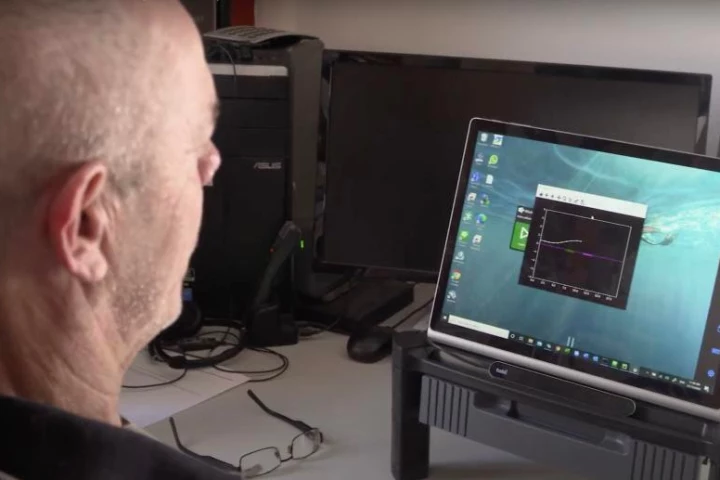Deep Brain Stimulation
-
Depression is condition where deep brain stimulation is showing real promise, and a new study has uncovered fresh detail on how it induces anti-depressive effects, offering scientists a novel biomarker via which they can work to optimize the approach.
-
A landmark study has demonstrated how a brain implant can deliver targeted bursts of electrical stimulation to improve cognitive functions. In real-time the implant senses biomarkers of cognitive deficits and responds by stimulating specific brain regions.
-
For decades surgeons have been using deep brain stimulation to treat severe Parkinson's disease. Now researchers have found a way to deliver it more precisely, resulting in the benefits lasting four times longer in animal models.
-
An incredible proof-of-concept study has demonstrated how a brain implant can treat severe depression using electrical stimulation. The implant tracks neural activity for patterns of depression and zaps a key region in real-time to disrupt the cycle.
-
Human trials for a first-of-a-kind device designed to treat the brain via electrical stimulation have brought some very promising results, leading to significant quality-of-life improvements for a pair of men with motor neurone disease (MND).
-
New data reporting the long-term effects of deep brain stimulation on early-stage Parkinson’s patients has found the treatment significantly slows the progression of the disease. A large Phase 3 trial is now underway to verify these findings.
-
When it comes to the treatment of neurological conditions, doctors are increasingly looking to battery-powered implants that stimulate parts of the brain. Now, however, scientists have developed one that's externally powered by magnetic fields.
-
Fascinating research reveals evidence for the first time suggesting deep brain electrical stimulation directly increases dopamine releases in the brain.
-
A new study exploring the potential for deep brain stimulation to treat severe depression has returned "absolutely sensational" results, with the reduction of depressive symptoms being not only fast-acting, but in some cases long-lasting.
-
In a first-of-its-kind study a new kind of non-invasive electrical brain stimulation has been trialed in patients with major depression. The results show this new technique to be promising in reducing depressive symptoms, with larger trials set to explore this novel treatment in greater detail.
-
Neuroscientists discovered that electrically stimulating the cingulum brain region creates a mild euphoria complete with laughter, and used it to calm down a patient undergoing a brain surgery where she needed to stay awake. It could be used as a treatment for anxiety, depression or chronic pain.
-
Open brain surgery is about as dangerous as it sounds. Fortunately, scientists have opened a new doorway to the brain, developing a promising first-of-a-kind device that can deliver electrical currents to targeted areas through a small keyhole incision in the neck.
Load More











